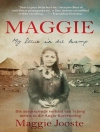‘It was the most providential escape yet. It will probably have the effect of making them think that I am even more mysterious than they believe me to be, and that is saying a good deal.’
Michael Collins knew the power of his persona, and capitalised on what people wanted to believe. The image we have of him comes filtered through a sensational lens, exaggerated out of all proportion. We see what we have come to expect: ‘the man who won the war’, the centre of a web of intelligence that ‘brought the British Empire to its knees’. He comes to us as a mixture of truth and lies, propaganda and misunderstanding. The willingness to see him as the sum of the Irish revolution, and in turn reduce him to a caricature of his many parts, clouds our view of both the man and the revolution.
Drawing on archives in Ireland, Britain and the United States, the authors question our traditional assumptions about Collins. Was he the man of his age, or was he just luckier, more brazen, more written about and more photographed than the rest? Despite the pictures of him in uniform during the last weeks of his life, Collins saw very little of the actual fight. He was chiefly an organiser and a strategist. Should we remember him as a master of the mundane rather than the romantic figure of the blockbuster film? The eight thematic, highly illustrated chapters scrutinise different aspects of Collins’ life: origins, work, war, politics, celebrity, beliefs, death and afterlives. Approaching him through the eyes of contemporaries and historians, friends and enemies, this provocative book reveals new insights, challenging what we think we know about him and, in turn, what we think we know about the Irish revolution.
Despre autor
Dr William Murphy teaches Irish Studies at Dublin City University. He co-edited The Gaelic Athletic Association, 18842009 (Dublin, 2009) and is author of Political Imprisonment and the Irish, 19121921 (Oxford, 2013).












